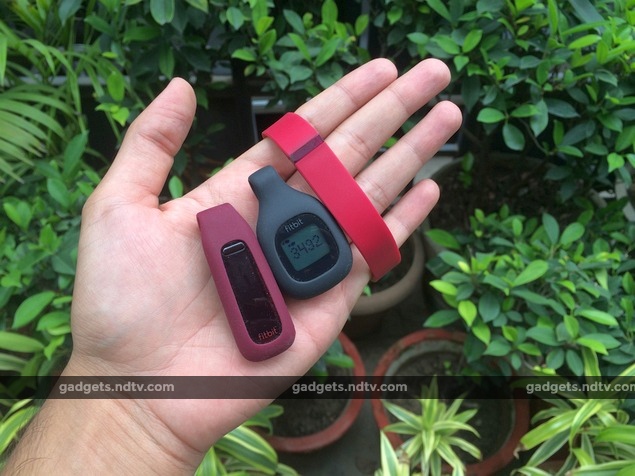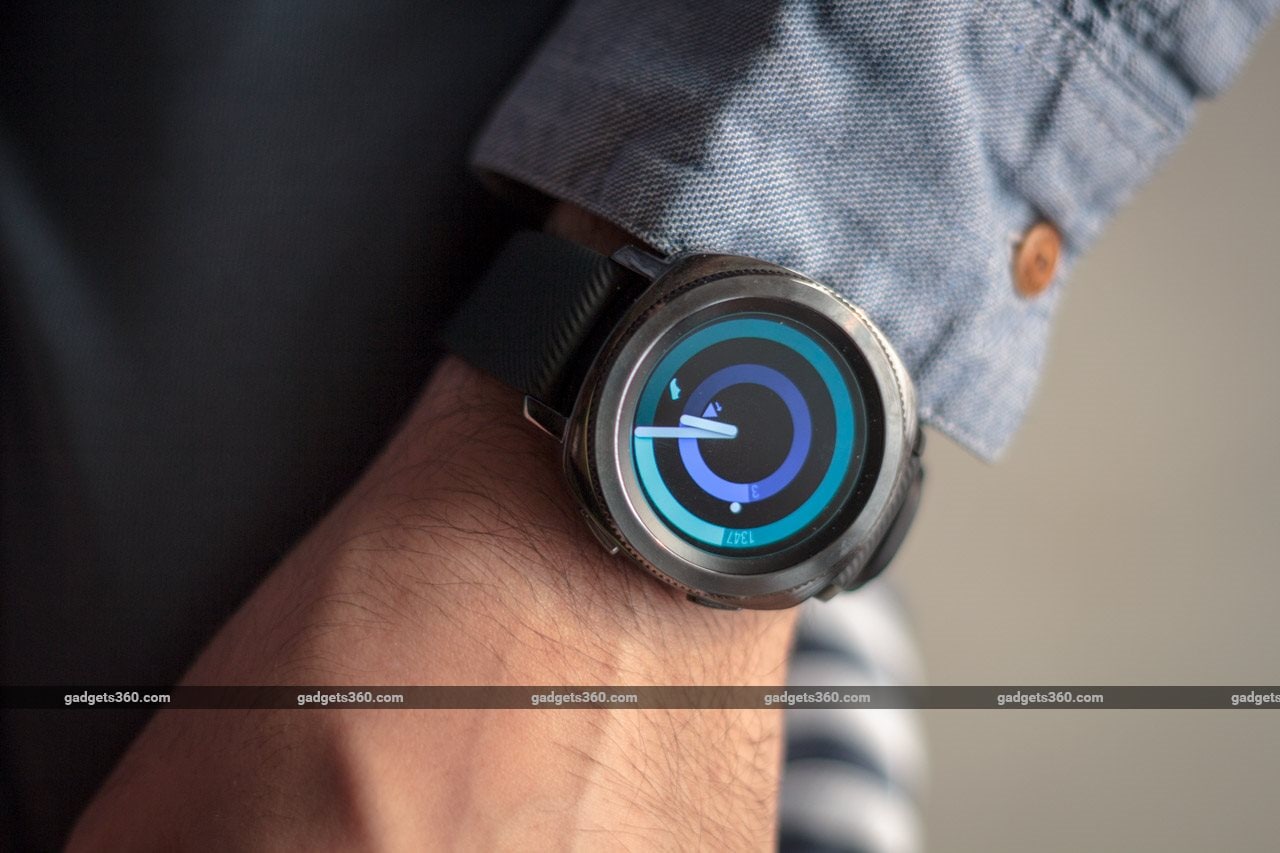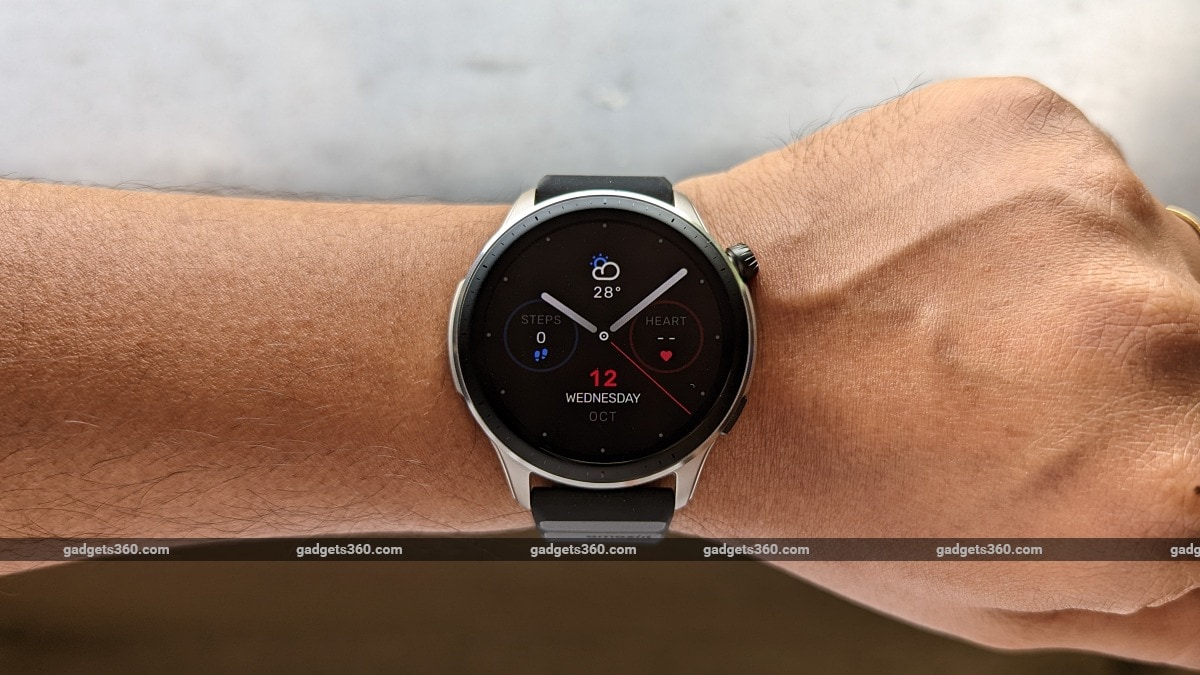Having already reviewed Fitbit’s premium fitness wearables, the Surge and Charge HR, we decided to take a look at the more affordable products offered by the company. The Fitbit Zip and Fitbit One are clip-on activity trackers, while the Fitbit Flex is worn on the wrist. These devices are priced between Rs. 3,990 and Rs. 6,990, which makes them fairly expensive in a market that has decent fitness wearables priced at Rs. 999. We used all three Fitbit devices to find out if they’re worth buying.
Fitbit Zip
The lowest priced among Fitbit’s offerings, the Zip, is a pretty basic activity tracker. It counts steps taken, distance covered, calories burnt, and the number of active minutes in your day. You can see this data on its display or track it through the Fitbit app. Unlike other Fitbit products, the Zip uses a replaceable watch battery that lasts up to six months. Not having to charge yet another device is a big advantage even if it means that you’ll have to replace the battery at least twice a year.
The Fitbit Zip comes with a belt clip and you can either carry it with you or clip it to your clothes. In our view, this is a double-edged sword. You’re far less likely to carry the Zip with you all the time – we kept forgetting what we had last attached it to. You’ll have to make it a conscious part of your routine. However, some people might prefer this kind of tracker especially if they carry the same bag everywhere.
![]()
We had no issues with the accuracy of step tracking on the Fitbit Zip, but it doesn’t measure elevation or sleep data. This is a bit of a letdown as today’s smartphones can measure elevation data and even much more affordable fitness bands such as the Xiaomi Mi Band can track sleep.
Fitbit One
The Fitbit One is another of the company’s products that comes with a belt clip. We’ve highlighted the issues with this design choice above, and we had the same troubles with the One as with the Zip – we kept forgetting to carry it with us. The Fitbit One also comes with an arm strap that you can slip it into, but you’ll look like you’re wearing a blood pressure monitor. We found this strap rather uncomfortable and switched back to the clip immediately.
Apart from the basic fitness parameters tracked by the Zip, the Fitbit One also tracks elevation and sleep data. The Fitbit One has a display and with a single button above it which can be used to enable sleep tracking and to cycle through the various data points that this fitness tracker shows. You can also set alarms – the device vibrates to wake you up quietly. We aren’t fans of manual sleep tracking, and are sure that people will forget to turn it on and off when needed. This is a big miss for the Fitbit One, which costs Rs. 6,990. Its battery lasted us around a week.
![]()
Fitbit Flex
The Fitbit Flex is a wrist-worn activity tracker, which helps ensure that you have it with you at all times, unlike the other two. You strap it to your wrist once and you can forget about it until it runs out of power, which takes around one week. The Flex has a tiny display comprising five LED dots which light up to tell you how close you are to achieving your goals. When you’ve hit your daily goal, the Flex vibrates to let you know.
The best feature of the Fitbit Flex is its build quality. It is sweat-, rain-, and splash-proof. You can’t go swimming with it but you don’t need to take it off in most other environments. We forgot to take it off before showering a few times and the device continued to work as expected. We found the Flex’s wristband very comfortable and not even once did it cause any irritation. Apart from when you want to charge it, you will not have to take it off. What we didn’t like about the Flex is the fact that it can only track sleep if you manually tell it to do so. Its costlier cousin, the Fitbit Charge, features automatic sleep detection and we feel that this is a big omission from the Flex. On the other hand, its silent alarms work perfectly, and it managed to wake us up more easily than the blaring smartphone alarms we’ve become used to.
![]()
Verdict
The Fitbit Flex is the best of these three fitness trackers simply because we prefer its wrist-worn design over the clip-on One and Zip. However, the pricing of these products is on the high side. Unless you need a fitness tracker with six-month battery life, we don’t see a good enough reason to justify spending Rs. 3,990 on the Fitbit Zip. Similarly, the lack of automatic sleep tracking makes it tough to recommend the Fitbit Flex and One, both of which are priced at Rs. 6,990. We feel that the Xiaomi Mi Band offers much better value at Rs. 999.



